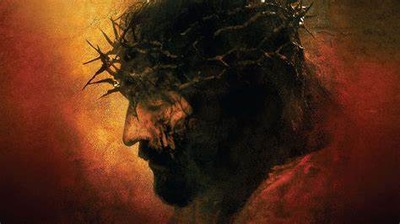Palm Sunday of the Lord’s Passion
March 24, 2024 — Year B
Readings: Is 50:4-7 / Ps 22 / Phil 2:6-11 / Mk 14:1-15:47
by Rev. Nixon Negparanon, Pastor
Today we embark on a profound journey that encapsulates the contrasting emotions of jubilation and solemnity, celebration and sacrifice. As we wave palm branches and chant “Hosanna,” we join the crowd in welcoming Jesus into Jerusalem, acknowledging Him as our King and Savior. Yet, intertwined with this triumphant entry, is the shadow of the cross looming over Him.
Today, the Church begins Holy Week with Palm or Passion Sunday. What is the correct title? Is it Palm Sunday or Passion Sunday? Well, actually, it is both. At the beginning of the Mass today, there is the blessing of the palm branches, and then there is the long gospel narrative of the suffering and death of Jesus. What does all of this mean as we begin Holy Week, going on to Maundy Thursday, Good Friday, and Easter?
With Palm Sunday, we begin the yearly journey, a journey not so much toward a destination, but a journey into a sacred time. We follow Jesus as He accomplishes His Paschal Mystery, which is His suffering, death, and resurrection, or in simple terms, the saving mission of Jesus. Jesus wants to save us from our sins and bring us closer to God. The readings of Palm Sunday invite us to reflect deeply on the mysteries of Christ’s Passion, inviting us to walk alongside Him in His final moments.
In the gospel narrative, we witness the fickleness of human nature as the same crowd that hailed Jesus with hosannas later cries out for His crucifixion. This stark comparison challenges us to examine our own commitment to Christ. Are we truly devoted to Him, or do we falter when faced with adversity or societal pressure? From the depths of human weakness and sinfulness, Jesus wants to lift us up to God and to living a life of holiness, a life for which God has created us to live. As we walk with Jesus through St. Mark’s account of the Passion, we are challenged to answer, perhaps for the first time, or perhaps for the hundredth time, the Jesus question: Who is this man that died on the cross and what does His death have to do with me?
The painfully detailed description of Jesus’ sufferings will bear no fruit in us unless we face this question and offer our personal answer. Our answer may start us on a lifelong commitment to Christ, or it may deepen a commitment we made long ago. We may struggle with darkness and with many more questions and find ourselves on our knees at the foot of the cross, but we cannot walk away from the Passion without an answer.
There is so much to ponder as we read the account of the plot to kill Jesus, the anointing at Bethany, the treachery of Judas, the Passover preparations, Jesus’ prophecy of His betrayal, His institution of the Eucharist, His agony in Gethsemane, His betrayal, arrest, and trial, Peter’s denial, the judgement of Pilate, Jesus’ humiliation and torture, His crucifixion, death, and burial. We could spend a lifetime mining the depths of the Passion narrative and this would be a fruitful way to spend a lifetime.
The urgent issue, however is that we truly encounter Jesus through this story. We do not know how long our lifetime will be. We cannot wait. We cannot put off our answer until a tomorrow that may never come for us. The Passion narrative invites us to contemplate Christ’s unwavering obedience to the Father’s will, even in the face of immense suffering. Jesus’ agony in the garden of Gethsemane reveals the depth of His humanity as He grapples with the impending ordeal, but His prayer, “Father, if you are willing, take this cup away from me. Still, not my will, but yours be done,” embodies the epitome of submission and trust in God’s plan.
As we meditate on Christ’s journey to Calvary, we are confronted with the harsh realities of sin and its consequences. The betrayal by Judas, the denial by Peter, and the abandonment by His disciples, serve as poignant reminders of human frailty and the prevalence of moral weakness. Yet, amidst these betrayals, Jesus extends forgiveness and compassion, exemplifying divine mercy in the face of human sinfulness.
At the heart of Palm Sunday lies the profound mystery of redemption, the sacrificial love of Christ poured out for our salvation. Jesus willingly embraces the cross, bearing the weight of our sins so that we may be reconciled with God. His cry of abandonment, “My God, my God, why have you forsaken me,” echoes through the ages, encapsulating the depths of His solidarity with humanity in its darkest hour.
Palm Sunday beckons us to journey alongside Christ embracing the paradox of the cross, the instrument of suffering transformed into a symbol of victory and redemption. May we, like the faithful centurion who witnessed Jesus’ crucifixion, profess with conviction, “Truly this man was the Son of God.” May our hearts be stirred with gratitude for the immense sacrifice of love offered for our salvation, and may we respond with renewed dedication to follow Christ faithfully, even to the foot of the cross.
As we enter into Holy Week, no matter how many times we have walked the way of the cross with Jesus, watched Him die, attended His burial, and dwelt in darkness at the tomb waiting for the light, it is a time for us to face right now the central question, Who is this this man who died on the cross and what does His death have to do with me?
 540-586-8988
540-586-8988 

